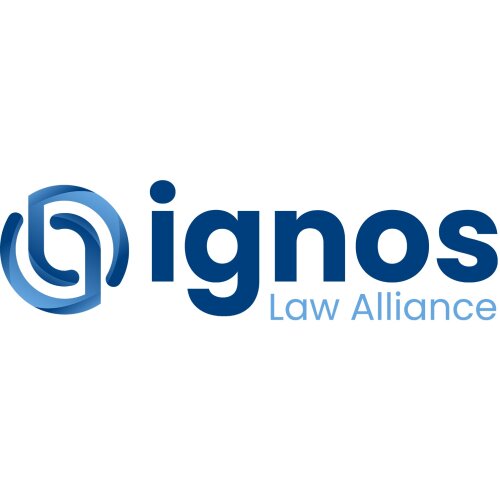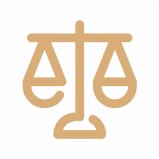Best Information Technology Lawyers in Indonesia
Share your needs with us, get contacted by law firms.
Free. Takes 2 min.
Or refine your search by selecting a city:
List of the best lawyers in Indonesia
About Information Technology Law in Indonesia
Information Technology (IT) in Indonesia has seen significant growth over the past two decades, driven by rising internet penetration, smartphone usage, and a vibrant tech startup ecosystem. The Indonesian government, acknowledging the pivotal role of IT in economic growth, has established specific laws and regulations to govern the digital domain. The key regulatory framework is the Information and Electronic Transaction Law (UU ITE), which addresses various aspects of online activities, from e-commerce to cybercrime. As Indonesia navigates the digital age, the legal landscape has evolved to address emerging issues in privacy, data protection, and digital transactions.
Why You May Need a Lawyer
There are several situations where individuals or businesses might require legal assistance in the realm of Information Technology in Indonesia:
- Data Privacy Concerns: With the advent of stricter data protection regulations, both individuals and companies may seek legal advice on compliance and data management practices.
- Cybersecurity Issues: If you are facing data breaches or cybersecurity threats, a lawyer can assist with navigating legal obligations and potential liabilities.
- E-commerce Disputes: Whether you are a consumer or an online merchant, e-commerce transactions may lead to disputes requiring legal intervention.
- Intellectual Property Rights: Protecting digital intellectual property like software, content, or patents often necessitates legal support.
- Electronic Contracts: Finally, drafting, reviewing, or contesting electronic contracts and terms of service benefits from legal expertise to ensure legal enforceability and fairness.
Local Laws Overview
The Indonesian legal system has developed specific laws that pertain to Information Technology:
- Law No. 11 of 2008 on Information and Electronic Transactions (ITE Law): This is the primary law regulating online activities, covering electronic transactions, information privacy, and cybercrimes.
- Government Regulation No. 82 of 2012 on the Operation of Electronic Systems and Transactions: It addresses the operational standards and obligations for electronic system providers.
- Law No. 19 of 2016 (Amendment to the ITE Law): Updates to the original ITE Law, refining certain provisions to adapt to technological advances.
- The Personal Data Protection Law (PDP Law): Enacted to safeguard personal data, this law lays out guidelines for the collection, storage, and processing of personal information.
Frequently Asked Questions
1. What is the ITE Law in Indonesia?
The ITE Law regulates electronic transactions, information dissemination, and cyber activities, providing a legal framework for IT-related matters, including cybercrimes and data protection.
2. How does the PDP Law affect businesses in Indonesia?
The PDP Law requires businesses to implement stringent data protection measures, ensuring personal data is processed legally and transparently, with consent from the data subject.
3. What should I do if there's a data breach in my company?
It's crucial to immediately notify affected parties and relevant authorities, conduct an assessment of the breach, and adopt measures to prevent further breaches, as mandated by local laws.
4. Can I get penalized for online defamation under Indonesian law?
Yes, the ITE Law allows for legal action against online defamation, with penalties including fines and imprisonment for the distribution of defamatory content.
5. Are electronic signatures legally binding in Indonesia?
Yes, electronic signatures are legally recognized under the ITE Law, provided they meet certain reliability standards and criteria.
6. How do I protect my software from unauthorized use?
Register your software with the Directorate General of Intellectual Property to ensure legal protection against unauthorized use or reproduction.
7. What are the consequences of non-compliance with the PDP Law?
Non-compliance can lead to administrative sanctions, which may include fines, restricted activities, or even business closures.
8. Can I conduct a business solely online in Indonesia?
Yes, but it requires compliance with local e-commerce regulations, which include having a physical address, registering your business, and fulfilling tax obligations.
9. What legal actions can be taken against cyberbullying?
Victims of cyberbullying can file a complaint under the ITE Law, which outlines penalties for online harassment and defamation.
10. Are there specific laws for fintech in Indonesia?
Yes, fintech is regulated by the Financial Services Authority (OJK) and Bank Indonesia, which have established guidelines to ensure consumer protection and secure financial transactions.
Additional Resources
Consider reaching out to the following resources for more assistance:
- Directorate General of Informatics Application: Offers insights on IT regulations and developments in Indonesia.
- Information Commission of Indonesia: Provides guidelines on the implementation of the ITE Law and data privacy regulations.
- Indonesian ICT Partnership Association (ICT Watch): A non-profit organization focusing on advocacy and research in the IT sector.
- ASEAN Cybersecurity Cooperation Strategy: Offers regional insights and cooperation on cybersecurity issues affecting Indonesia.
Next Steps
If you find yourself needing legal assistance in Information Technology in Indonesia, consider the following steps:
- Identify Your Needs: Clearly determine the nature of your legal issue, whether it's related to data privacy, IP rights, or e-commerce.
- Research Qualified Lawyers: Look for lawyers specializing in IT law, preferably with experience in similar cases or industries.
- Consult a Legal Expert: Arrange an initial consultation to discuss your case and gain preliminary legal advice.
- Evaluate Costs: Inquire about legal fees and costs involved, ensuring they fit within your budget and financial plans.
- Engage Legal Representation: Formally hire a lawyer if you're satisfied with their expertise and proposed strategy for handling your case.
Lawzana helps you find the best lawyers and law firms in Indonesia through a curated and pre-screened list of qualified legal professionals. Our platform offers rankings and detailed profiles of attorneys and law firms, allowing you to compare based on practice areas, including Information Technology, experience, and client feedback.
Each profile includes a description of the firm's areas of practice, client reviews, team members and partners, year of establishment, spoken languages, office locations, contact information, social media presence, and any published articles or resources. Most firms on our platform speak English and are experienced in both local and international legal matters.
Get a quote from top-rated law firms in Indonesia — quickly, securely, and without unnecessary hassle.
Disclaimer:
The information provided on this page is for general informational purposes only and does not constitute legal advice. While we strive to ensure the accuracy and relevance of the content, legal information may change over time, and interpretations of the law can vary. You should always consult with a qualified legal professional for advice specific to your situation.
We disclaim all liability for actions taken or not taken based on the content of this page. If you believe any information is incorrect or outdated, please contact us, and we will review and update it where appropriate.
Browse information technology law firms by city in Indonesia
Refine your search by selecting a city.
















